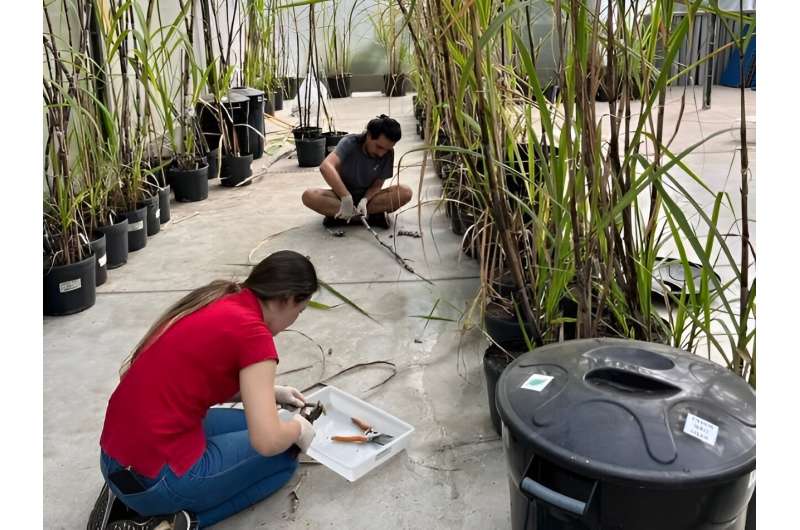This article has been reviewed according to Science X's editorial process and policies. Editors have highlighted the following attributes while ensuring the content's credibility:
fact-checked
peer-reviewed publication
trusted source
proofread
Review article shows key role of Brazil in research on sugarcane for bioenergy

Publications on sugar cane have increased exponentially since 2006 worldwide, and Brazil has had more articles published on the topic than any other country in the period, according to a review in BioEnergy Research.
The number of articles on the subject averaged about five per year between 1999 and 2006, but had reached 327 by 2021. Brazil has twice as many articles on sugar cane as the United States, which ranks first in the world for scientific publications in general. Brazil is also ahead of Australia, China and India, which are also major sugar cane growers.
According to the authors of the review, who are affiliated with the Laboratory of Plant Physiological Ecology (LAFIECO) at the University of São Paulo's Institute of Biosciences (IB-USP), these statistics highlight Brazil's importance to global sustainability efforts.
"Sugar cane is one of Brazil's main tools for coping with climate change as ethanol from sugar cane is one of the most important renewable biofuels that can replace fossil fuels. However, there isn't enough ethanol in the world. More needs to be produced, and this requires genetic improvement of sugar cane," said Marcos Buckeridge, last author of the review and head of LAFIECO.
The review also discusses the history of sugar cane genetic improvement in Brazil from the arrival of the Portuguese to the currently available varieties.
"Despite all the improvement, the genetic engineering strategies applied to sugar cane need to advance further compared to other crops. Moreover, we've reached a limit in genetic terms: we'll have to increase the number of cells or their size for the plant to store more sugar, and this requires sophisticated techniques. Big data, advanced analytical methods, bioinformatics and substantial computational resources, among others, are needed to help improve sugar cane's physiological performance and yield without expanding crop acreage," Buckeridge explained.
Challenges ahead
Scientists all over the world who aim to control the behavior of sugar cane with precision and leverage its potential to help cope with the extreme droughts and floods that are part of climate change face two challenges. The first is the need for better genome sequencing. In Brazil, this effort is being led by Diego Pachon, a researcher at the University of São Paulo's Center for Nuclear Energy in Agriculture (CENA-USP).
Once precise whole genome sequencing of sugar cane is successfully obtained, the next step will be to develop techniques capable of making specific modifications in the genome. The main hope for most scientists resides in CRISPR-Cas9 gene editing, currently being tested by Marcelo Menossi, a researcher at the State University of Campinas's Institute of Biology (IB-UNICAMP).
Progress has also been achieved in the field in recent years in other major sugar cane production and research centers, such as the United States, India and Australia.
More information: Adriana Grandis et al, Biotechnologies to Improve Sugarcane Productivity in a Climate Change Scenario, BioEnergy Research (2023). DOI: 10.1007/s12155-023-10649-9
Journal information: Bioenergy Research
Provided by FAPESP





















